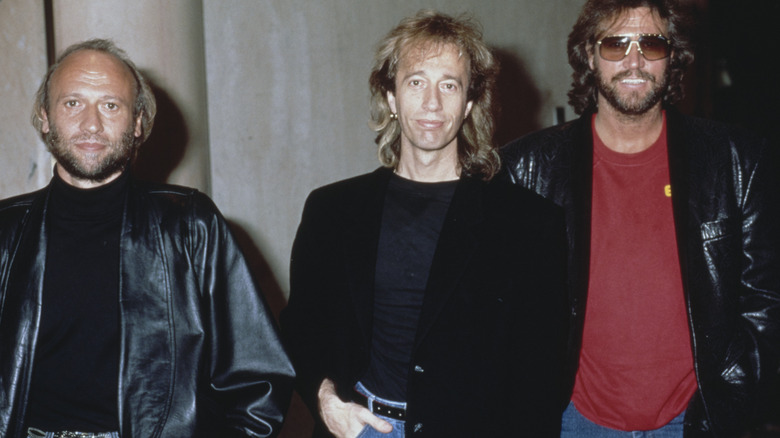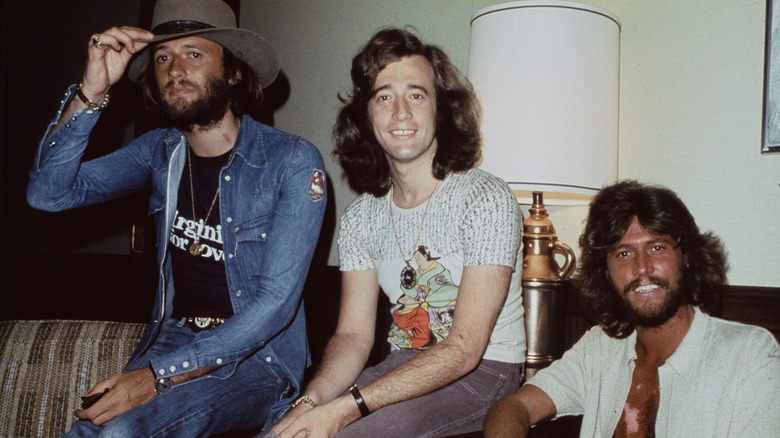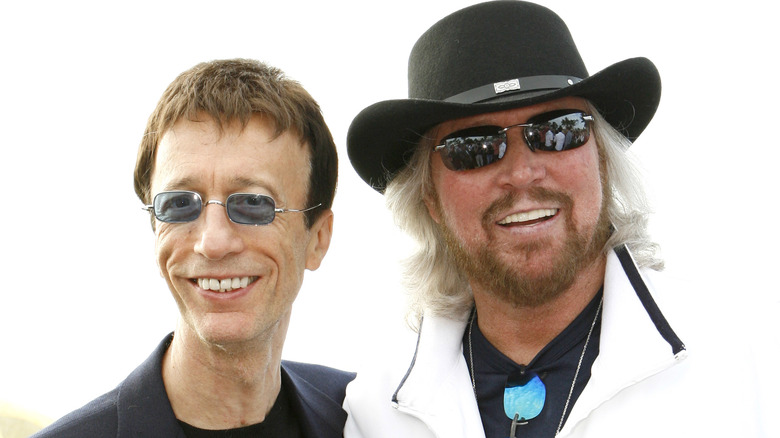What The Name Bee Gees Means
Though the Bee Gees are instantly recognizable disco hitmakers, there are a few misconceptions about the band that persist to this day. First of all — though now thought of almost exclusively as disco music pioneers — the English-Australian band actually got their start in the '60s playing a completely different style of music, similar to other British Invasion rock bands like The Beatles, per Neatorama. Another prevalent misconception is how the Bee Gees got their name.
As most fans know, the trio consists of three singing brothers named Barry, Robin, and Maurice Gibb. For this reason, it's now commonly thought that the Bee Gees stands for the "Brothers Gibb" — which makes sense, but while the true story behind the name's origin does relate to the initials "B" and "G," those letters come from another set of names entirely. That list includes Barry Gibb, but also Bill Goode and Bill Gates (no relation to the famous Microsoft founder) — two men who helped the band flourish when the Gibb family left England for Australia, according to the official Bee Gees website.
At first, it was just 'The BGs'
The Gibb family moved around a lot while future Bee Gees brothers Barry, Maurice, and Robin were young, and while they had played music together for some time, they formally became a group after the Gibb family moved to Australia in the 1950s, according to American Songwriter. Two men who helped get the group off the ground at that point were Bill Goode, an Australian radio DJ who gave the Gibb brothers some early airplay, and Bill Gates, a promoter who worked with the band at that time.
It was Goode that suggested the band name "the BGs" based on Barry Gibb, Goode, and Gates' initials. According to Vancouver Pop Music, though, by 1963, the band signed their first recording contract with Festival Records, and it was around that same time that the BGs evolved into the Bee Gees. With Goode and Gates gone, the myth that Bee Bees stands for "brothers Gibb" was born. By 1967, the Bees Gees were back in England, and shortly after that point, what's typically thought of as the band's debut record was released, named — appropriately enough — "Bees Gees' 1st."
The Bee Gees name was retired in 2003
While the Bees Gees were known as the Bee Gees rather than the BGs since around 1963, they still played what could be broadly considered British Invasion-style rock. What's now considered their first disco hit — "Jive Talkin'" — came out in 1975, just two years before the band's iconic falsetto harmonies were etched into our collective consciousness with the chart-topping song "Stayin' Alive." From there, the Gibb brother disco hits just kept coming.
In 2003, when Maurice Gibb died suddenly at the age of 53, the Bee Gees name was retired. It was revived by the surviving Gibb brothers in 2009, and although they never recorded again, the remaining Gibb brothers did perform a few times before Robin also died in 2012. Barry is now the only living Gibb brother, and the Bee Gees seem done for good, but in 2020, the HBO Bee Gees documentary "How Can You Mend a Broken Heart" — rebroadcast by CNN three years later — introduced Bee Gees music to a whole new generation.


